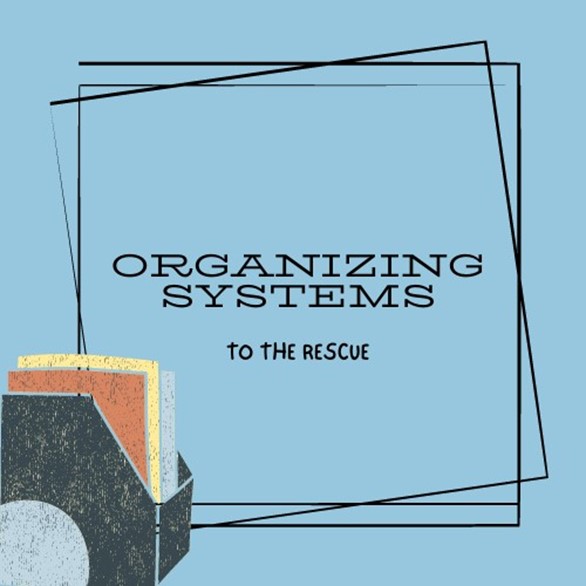by Adapt Training and Development

January can feel like a big month for organizing. Receiving presents over the holidays may mean we’re juggling more stuff, and getting more organized in the New Year is a resolution many people make. It occurred to me that this is a good time for a little “mental organizing.”
David Allen, the author of the very helpful book Getting Things Done has said “your mind is for having ideas, not holding them.” One of the things I’ve learned is that things always feel more chaotic and unmanageable in my head than they do on paper. Allen talks about how we need “collection buckets” for information so we’re not constantly trying to mentally track everything. Here are a few approaches I’ve found helpful:
To Keep Track of Tasks & Projects
- David Allen suggests determining if it is a task or a project. A task is something that can be done quickly. Projects are more complicated and involve multiple steps. You’ll want to break projects into chunks (individual tasks).
- Ask: what is the next action? If the next thing takes less than 2 minutes, he recommends doing it on the spot. If it takes longer, add it to your to-do list or calendar.
- To-do lists can be hand-written or electronic, such as the task list in Outlook. To-do lists should only be things that you will do and can do something about (actionable). David Allen suggests keeping a “Maybe / Someday” list of folders for ideas, dreams, things you want to get to in the future.
- If it helps you keep things straight, you might want to keep multiple to-do lists, especially for the items that don’t need to happen right away. Microsoft One Note can be helpful for this. It allows you to create tabs (sections) for different areas and then multiples “pages” for each section. Potentially, you could have different sections for things like calls to make, errands to run, agenda items for next meeting, and so on. This page has some good tips on getting extra organized with One Note.
- A dry erase At a Glance wall calendar can help you to quickly see your daily or weekly schedule at a glance.
To Keep Track of References & Resources
- There is a lot of information coming at us all the time, and it’s helpful to create storage systems that make sense to us. These systems might contain forms we sometimes need, new policies and procedures, confirmation emails about training or travel plans, and so on.
- Folders in email allow you to save messages by topic, which can help you to follow up with projects or conversations. If you’re not using this feature in Outlook, I highly recommend moving some things into folders and subfolders. You can get extra fancy with it and create rules for incoming emails to sort messages into different folders.
Or maybe we just need a helpful mouse in our lives. Did you see the story (and video) about a man whose shop was being mysteriously tidied up every night? Apparently, a mouse was behind the housekeeping.